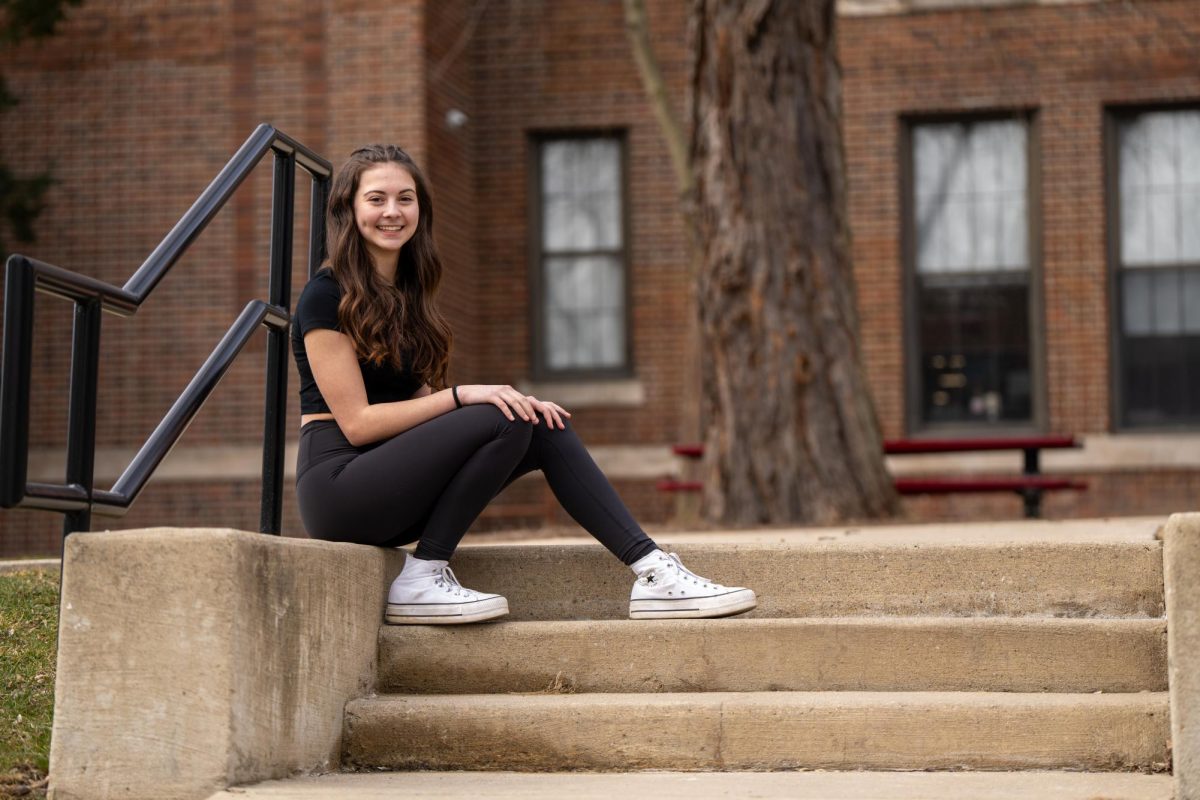![Volunteers get ready to load meals onto buses to be delivered to families in need. These volunteers worked tirelessly to help the AAPS meal program and came to have real connections with the families they delivered meals to. “A lot of families were isolated for a period of time,” Margolis said. “They look forward to those deliveries, and [volunteers] developed relationships with families.” Photo courtesy of Liz Margolis.](https://chscommunicator.com/wp-content/uploads/2024/01/Screenshot-2024-01-24-at-8.39.31-AM.png)
Title: More than a Meal
Subhead: Starvation at school should no longer be the norm for students in the US
Hunger consumes us. No matter who you are, your stomach starts to rumble, and all other things turn to fog. Learning math or science no longer matters when all you can think about is when you’re going to be able to take a bite of food.
That is why allowing kids to have access to free lunch is so important. Whether you just forgot your lunch at home or school lunch is the only full meal you get, all kids deserve the option of free school lunch. Markell Lewis Miller, the director of Community Food Programs at Food Gatherers, is a firm believer that all kids should be able to have access to food.
“If kids are fed and have access to a healthy meal, it’s easier to learn; it’s easier to have kind of regulated behavior during a school day when you’re trying to sit in class and have energy for exercise for sports,” Lewis Miller said.
Before COVID-19, when students would charge for lunch without having the means to pay for the food, it would contribute to a deficit in the Ann Arbor Public School’s (AAPS) food program. Every school year, the district made the schools pay that deficit off, which was in no way fair to the school budget, so the district would absorb the debt. But to be able to pay off that debt, Michigan required AAPS to apply for a grant to reduce the funds to zero, so that at the beginning of the next school year, they would have no debt in school lunch.
The second the announcement was made that school was called off for the next two weeks, Liz Margolis, the executive director of student safety and district operations for AAPS, and her team worked tirelessly over the weekend to make sure that by Monday, families had a place to get food.
“Friday, March 13. It’s burned in my brain. We worked all weekend so that we were able on that Monday, the 16th of March, to start with the program,” Margolis said. “The federal government allowed us to do food for free for everyone. And so we developed about 22 service locations, for families to come to to get their food. We served over one and a half million [people] in the U.S. during COVID-19.”
At the start of COVID-19, President Biden enacted the American Rescue Plan. This plan’s mission was to “provide direct relief to Americans, contain COVID-19, and rescue the economy,” according to the White House. This plan included giving funds so that AAPS could provide food to their students and families in need while out of school.
This food assistance given by AAPS also allowed bus drivers, who in most places would be laid off during COVID-19, a chance to keep their jobs by delivering food to families. The program also gave food service workers at Chartwells who couldn’t be working in schools employment.
But as our time of online school due to COVID-19 came to an end, the support of free lunch from AAPS and the federal government didn’t. When going back to school in 2021, it was announced that for the entire school year, all AAPS students would be offered free lunch and breakfast. As families were still recovering from COVID-19, this should be expected, right? In fact, shouldn’t students no longer have to worry about not being able to pay for school lunch again? That seems like the most logical answer, except that the federal government ended funding for schools to be able to have free school meals in June of 2022.
This meant that families would now have to go back to the previous ways of getting free school lunches, with complicated forms such as EBT. But what if you don’t quite qualify for free or reduced lunch, or your parents aren’t able to fill out the form? Well then, it sucks to be you. Or it did until the Michigan Senate proposed Bill 173, providing funding for all public schools to be able to offer their students free school lunches.
“Every Michigan child deserves a chance to pursue their potential and build a bright future. This historic education budget will make that possible,” Governor Gretchen Whitmer said. “This budget puts students first and supports parents by expanding access to free Pre-K, providing free breakfast and lunch to all public school students, and improving higher education.”
Bill 173 also makes it so that you can’t tell the difference between a child whose family is paying for their lunch and a child who gets free lunch; it’s simply food.
“Lunch is a part of the school day; it’s part of the experience. And so it’s easier for students to participate and not feel like they’re left out or, you know, doing something different,” Lewis Miller said. ”There’s a great communal atmosphere when meals are free for everyone.”
With this new bill, there are no longer indicators of a child receiving free school lunch, no different color card, or a pop-up that tells people if they are receiving free lunch — no more shame for students in need. This erases the stigma that comes along with free school lunches.
“Students need to be fed, and they do not need stigmas attached to it, like free and reduced lunch. They just need to receive nutritious meals and not have to worry about that. And so that’s what our goal is,” Margolis said. “Our goal is to be following the regulations to provide the free breakfast and lunch to any students in our district, and it’s critical because we think that that is important to student learning.”
However this opportunity is not offered to all students in other states; according to the Detroit Free Press, Michigan is only one of eight states to provide students with a universal free lunch. When you think about it, shouldn’t the opportunity to be fed and nurture a student’s body also go hand in hand with nurturing a student’s mind through education? Food is necessary to live; it is a basic human right and so is education. America as a country needs to take a step forward and start providing all students, in all states, with free school lunch.









